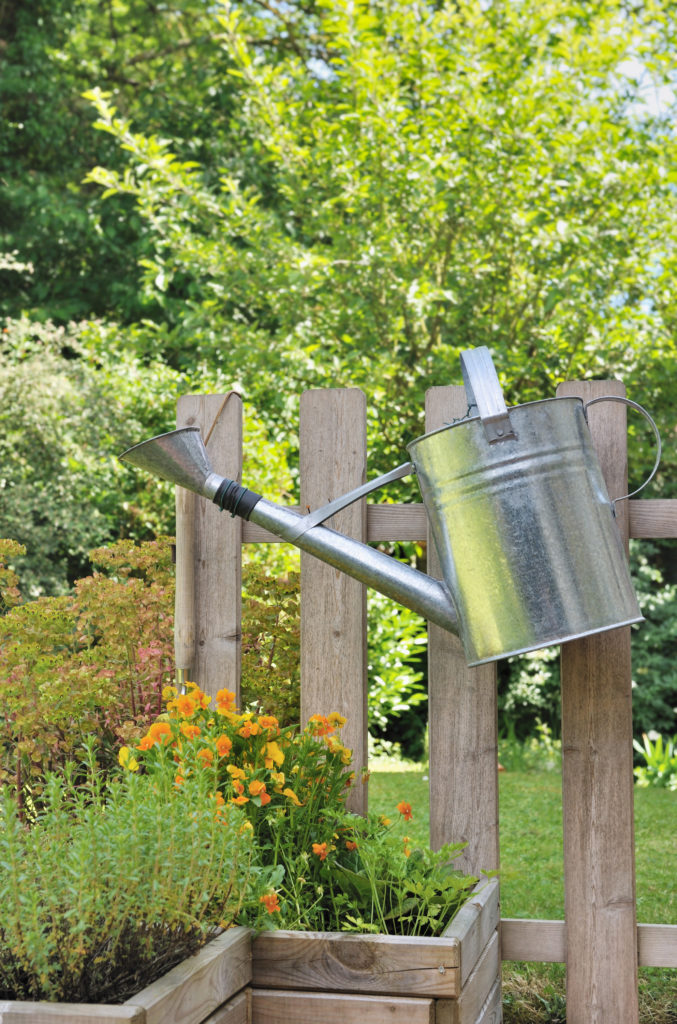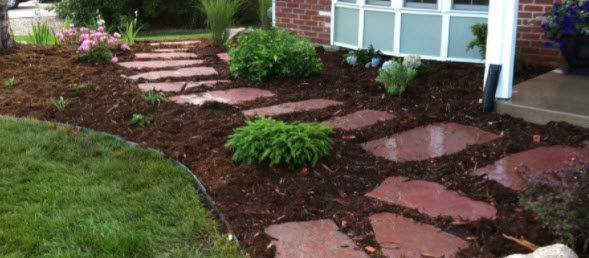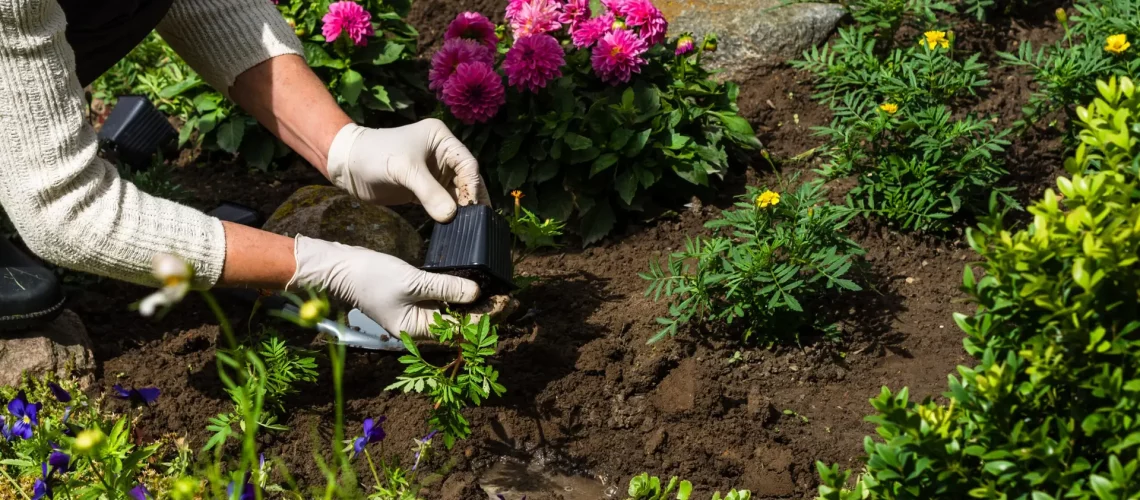Our gardener loves working with clients to help make their yards look amazing. Here are the top three questions she gets asked frequently and her responses.
1) When Should I Water My Plants?

Watering should be done in the morning, the earlier the better. Plants need a chance to soak up their water before it gets too hot and sunny, as water evaporates at an increased rate as temperatures rise. Plants also do not like to have wet roots during the night. Water accumulating in the soil at night can encourage pests and root rot. Damp foliage can promote sooty mold and other mildews.
2) How Often Should I Fertilize My Vegetable Garden?
That depends upon what you’re feeding your plants. If you’re applying an extended release fertilizer, it should continuously break down and provide nutrients for your plants for months at a time. These are great for heavily feeding plants, like tomatoes. If applying a liquid or granular fertilizer, you will need more frequent applications. Compost is frequently used in place of fertilizers, and are a great environmentally conscious alternative. Usually composts have a lower nutrient ratio than your typical fertilizers, so there is less of a chance that your plants will “burn” as some fertilizers can cause if applied too heavily. My favorite method of feeding plants is to amend the soil with compost, which builds healthier soil over time and keeps your plants flourishing year-round and allows for a bountiful yield.
3) Should I Mulch?
Mulching the landscape is especially important as it prevents soul erosion, weeds, and provides extra nutrients to your plants. Additionally, without the cover of mulch, plants will lose water to evaporation much quicker and may struggle to stay vibrant during the summer. Cedar mulch is a great choice as it decomposes at a lower rate than some other mulch choices, which allows it to last longer. Only very minimal maintenance will be required for a couple years after a good mulching but ensure that the mulch is 3 inches thick for best results. Mulch should be added or replaced when you start to see signs of decomposition or discoloration.

If you would like to learn more about our gardening services…
Please contact us at 303.443.3460 or submit a Contact Us form and we will reach out to you.









